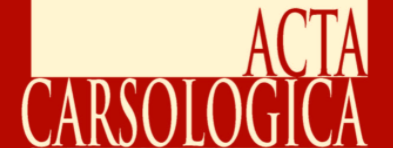Nas últimas duas décadas, o Brasil avançou na criação de Áreas Naturais Protegidas (APNs), atingindo mais de 17% de seu território. No entanto, o orçamento destinado à efetivação dos ANP ainda é insuficiente, criando lacunas que impedem essas áreas de cumprir seus propósitos. O Parque Nacional das Cavernas do Peruaçu (PNCP) foi criado em 1999. Sua infraestrutura de ecoturismo foi concebida e construída de 2011 a 2015 e aberta ao público em 2017. A implantação do PNCP difere de outros APNs sob responsabilidade da gestão do governo federal no Brasil, por envolver recursos privados de empresas com obrigações legais de compensação ambiental. Nesse contexto, foi realizado um estudo sobre o PNCP, com dados primários e secundários analisados. A pesquisa teve como objetivo relatar o processo de implantação do PNCP, bem como apresentar o estado atual da gestão e as perspectivas deste Parque. Com os resultados obtidos, foi possível concluir que a experiência de parceria entre o poder público e a iniciativa privada é uma possibilidade prática para a implantação e gestão do ecoturismo, ampliando sua sustentabilidade socioeconômica e contribuindo para os objetivos de conservação da natureza.
In the last two decades, Brazil has advanced in the creation of Natural Protected Areas (NPAs), reaching more than 17% of its territory. However, the budget allocated for the effectiveness of NPAs is still insufficient, creating gaps that hinder these areas from fulfilling their purposes. The Cavernas do Peruaçu National Park (PNCP) was created in 1999. Its ecotourism infrastructure was conceived and built from 2011 to 2015 and opened to the public in 2017. The implementation of the PNCP differs from other NPAs under the responsibility of the federal government management in Brazil, since it involves private resources from companies with legal obligations to environmental compensation. In this context, a study on the PNCP was carried out, with primary and secondary data analysed. The research aimed at report the process of the PNCP implementation as well as presenting the current state of management and prospects for this Park. With the results obtained, it was possible to conclude that the experience of a partnership between the public power and the private initiative is a practical possibility for the implementation and management of ecotourism, expanding its socioeconomic sustainability and contributing to the goals of nature conservation.
AraujoHR de, Lobo HAS, Travassos LEP. Evaluation of the private participation in the implementation and management of ecotourism in cavernas do Peruaçu national park, Brazil. AC [Internet]. 2019Dec.9 [cited 2021Aug.21];48(3). Available from: https://ojs.zrc-sazu.si/carsologica/article/view/7273

